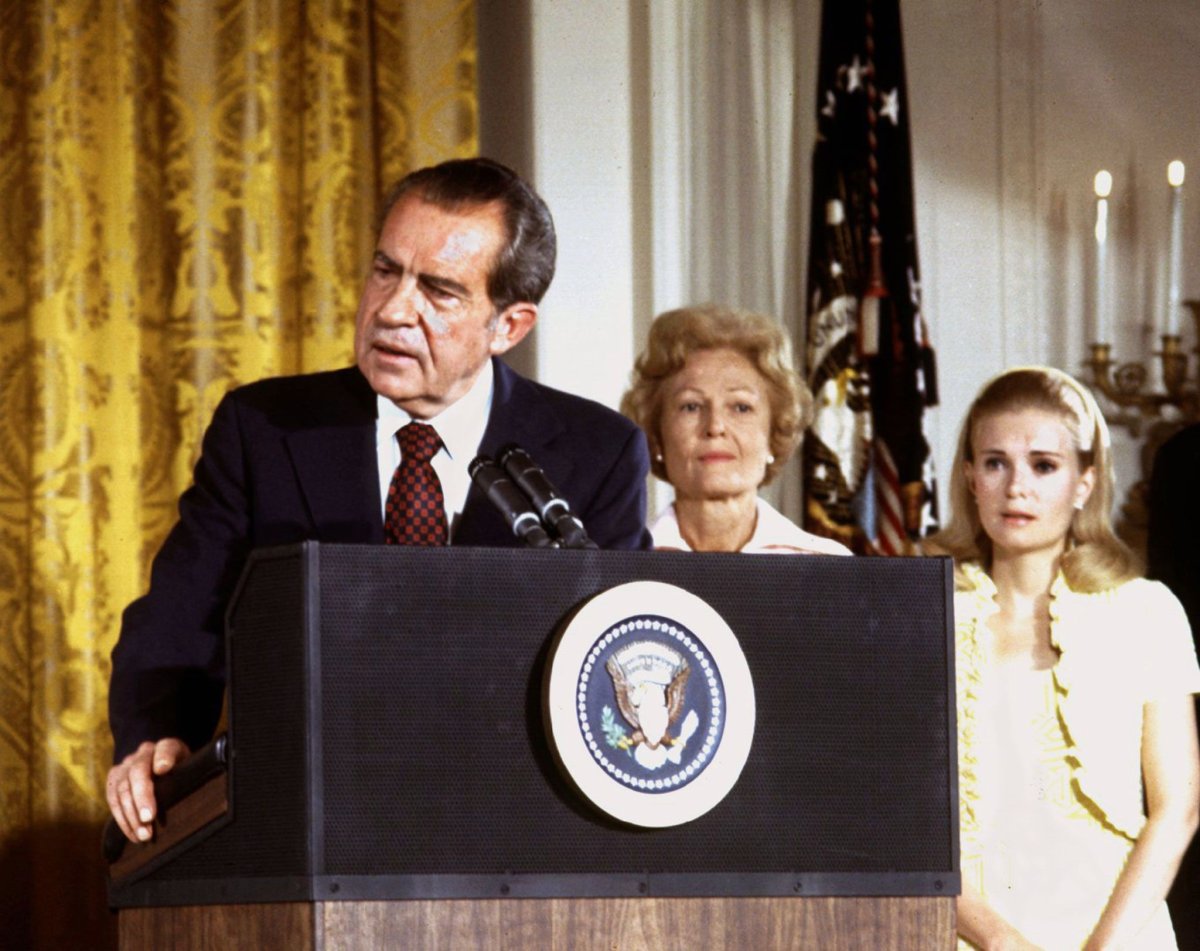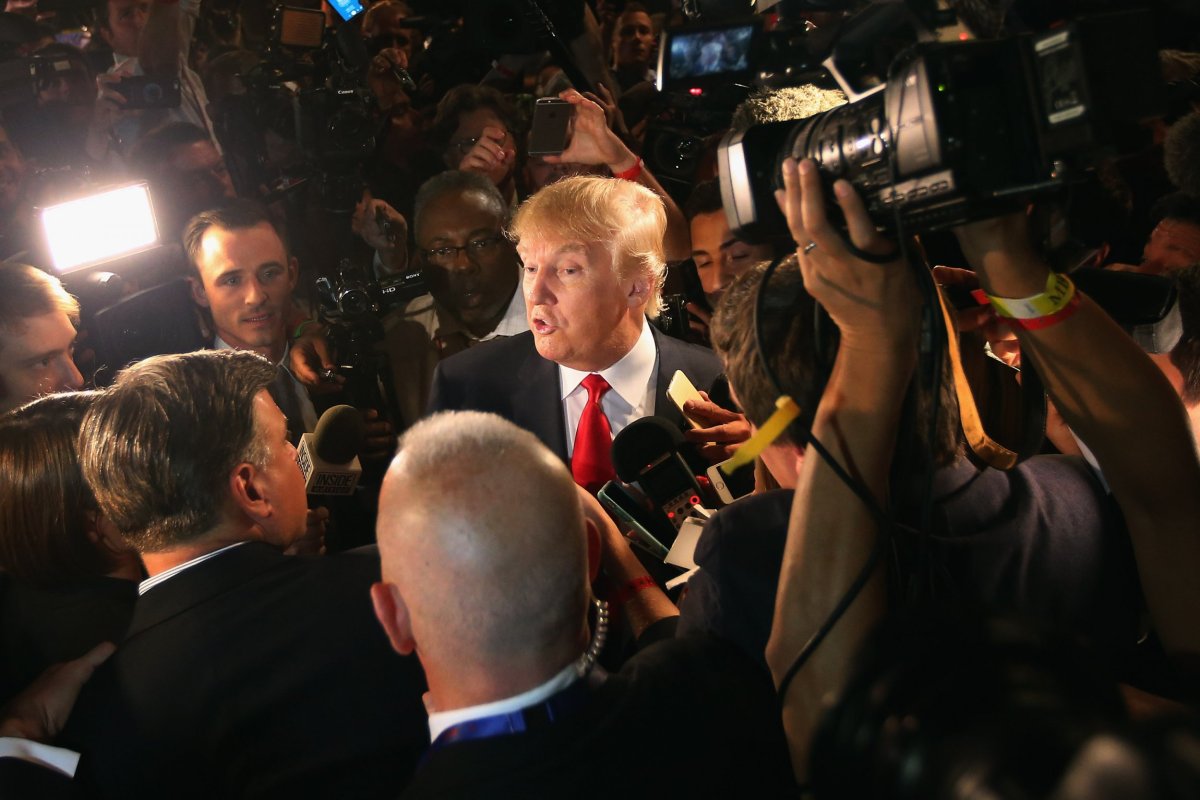
In the movies, or on TV, it usually happens like this: A process server posing as a clumsy bike messenger slaps someone with a subpoena as he or she walks out of a deli. But it didn't happen that way in 2004, when I found myself in the middle of another special counsel investigation that threatened a Republican White House. Instead, I got a call from the FBI asking if I'd be willing to answer a few questions about an article I had co-authored for Time magazine, where I was a White House correspondent. I demurred, and after some back and forth with the counsel for the magazine's parent company, Time Inc., the feds simply faxed their subpoena to the lawyers. How boring.
What followed, however, wasn't boring. For over a year, I fought in court alongside Time Inc. to avoid revealing my discussions with sources in what came to be known as the CIA leak case. It's called that because the identity of a former covert intelligence operative, Valerie Plame, had been disclosed—a possible felony and something that reportedly damaged U.S. security and put lives in danger. I didn't out Plame; that happened before I started writing about the case. But an administration official, Karl Rove, had disclosed her identity to me. Our appeals took more than a year and went all the way to the Supreme Court, which declined to hear our argument that I shouldn't have to testify against a source because of a privilege of confidentiality that is akin to that of physicians and clergy. During one appeals proceeding, I scribbled in my notebook: "Je suis fucked." I wound up telling my story to a grand jury.
The CIA leak scandal engulfed Washington for four years and led to the conviction of Vice President Dick Cheney's chief of staff, I. Lewis "Scooter" Libby, on charges of lying to the FBI and obstruction of justice. I was a witness at his trial. President George W. Bush commuted Libby's sentence, sparing him prison but still leaving the formerly powerful aide with a felony conviction and the loss of his law license.
Related: What's the best way to investigate Trump and Russia?
I was prepared to go to prison to avoid testifying about my sources. I even enlisted a penal consultant, who counseled me on, among other topics, how to rebuff advances from fellow inmates at what was likely to be a dismal but not overly violent federal facility. (The answer was like something from Cosmopolitan: Say you're flattered and politely decline.)
Fortunately, my sources—Libby and Rove—granted me permission to testify about what they had told under cloak of confidentiality. But I still spent considerable time on the front page of The New York Times, even speaking live on CNN in front of the federal courthouse in Washington, D.C.
I bring up my case now because a special counsel pursued it, just like the current inquiry into Russian interference in the 2016 U.S. presidential election. That gives me some insight into what these things are like and the damage they can do—to both those caught in the maelstrom and the country at large. I was lucky that Time Inc. paid the enormous legal bills. The then-flush publishing giant hired some of the best attorneys in the country, including famed First Amendment champion Floyd Abrams and Ted Olson, the Reagan-era solicitor general, who led the successful fight for gay marriage. Time Inc. even got me my own white-collar criminal lawyer. But many of those who find themselves scrutinized by a special counsel, either as a witness, like me, or as a target, can end up bankrupt, their careers in ruins. That didn't happen to me, but I know the personal toll. Explaining it to my then-6-year-old son was heartbreaking.
That's to be expected, but when these investigations morph into sprawling searches for miscreants, the country suffers too. We should keep that in mind now, although the much-heralded former FBI Director Robert Mueller is running the probe into the Trump-Russia connection. Even lauded lawmen have gone too far as special counsels.
A 'Third-Rate Burglary'

To understand the current independent investigation, you have to go back to the Watergate era. In October 1973, President Richard Nixon ordered the firing of the Watergate special prosecutor, Archibald Cox, who tried to get the White House to hand over audiotapes of Oval Office conversations. Cox was fired, but his replacement, Leon Jaworski, convinced the Supreme Court to order Nixon to turn over the tapes. What they revealed: Despite his denials, the president had obstructed justice. Tell the FBI to "stay the hell out," Nixon ordered his aides in 1972, days after what his aides famously dismissed as a "third-rate burglary" at the Democratic National Committee headquarters at the Watergate complex in Washington, D.C.
To make sure no president sacked a special prosecutor again, Congress passed the Ethics in Government Act in 1978, creating a new category of outside prosecutor called an "independent counsel," who would be appointed by a panel of judges from the federal appeals court in Washington, D.C. These men—and they were all men—had free rein without fear of being fired by the president.
Some independent counsels have used their mandated powers wisely. An investigation into a defense contracting bribery in the Reagan administration was tightly focused and led to indictments, but the prosecutor showed admirable restraint, for instance, wisely using his discretion not to indict then–Attorney General Ed Meese, despite the pressure to perp-walk him.
Other special counsels have been widely criticized for being reckless with their huge budgets and wide discretion. Lawrence Walsh, who prosecuted the Iran-Contra affair during the late 1980s and early 1990s, indicted former Defense Secretary Caspar Weinberger just days before the 1992 presidential election in what was widely viewed as an effort to sway the election and punish Vice President George H.W. Bush, the GOP nominee. That indictment for false statements was embarrassingly dismissed because the statute of limitations had expired.
The most dreadful abuse of independent prosecutorial authority was by Kenneth Starr, who investigated the Whitewater land deal that Bill and Hillary Clinton made during the 1970s, when Bill Clinton was on his upward trajectory through Arkansas politics. Their investment property became an issue during the 1992 presidential election and in the early days of the Clinton White House. A federal investigation found no wrongdoing by the president, and congressional investigations found little evidence of malfeasance. But, under political pressure, Attorney General Janet Reno asked that judicial panel to appoint an independent prosecutor. It picked one counsel, dumped him and then chose Starr.
Starr was a respected jurist, but he had never been a prosecutor, and it showed. He went wildly afield from Ozarks real estate, leading critics to liken him to crazed Inspector Javert in Les Misérables, who chases the musical's protagonist for decades for stealing a loaf of bread. At least the Frenchman stuck to baguettes. Starr delved into the suicide of Clinton counsel Vince Foster and even ensnared Arkansas's sitting governor, who had nothing to do with Whitewater, on an unrelated mail fraud charge. A breathless Starr also stuck his nose into a sexual harassment case that an Arkansas state employee, Paula Jones, brought against Bill Clinton when he was governor. A conservative activist planted a question about Monica Lewinsky into the Jones deposition, and the president's evasive answer eventually led to his impeachment. Clinton went on to serve the rest of his term, but it's little wonder Congress let the statute creating the independent counsel lapse in 1999. Which was fine with Starr: He later argued that the law that gave him his powers in this case was "constitutionally dubious" and "structurally unsound."
Yellowcake Revenge

After the independent counsel law expired, Congress went back to the pre-1998 system, in which the Department of Justice appointed a special counsel, such as Watergate's Cox. That was true in the CIA leak case, which began in 2003, when conservative columnist Robert Novak outed Plame in his nationally syndicated column. The CIA was outraged and sent a criminal referral to the Justice Department.
The motive for the leak seemed to be revenge. In 2002, in the lead-up to the Iraq War, the agency had dispatched Plame's husband, former ambassador Joseph Wilson, to Niger to investigate a British claim that Iraqi dictator Saddam Hussein was buying radioactive ore, known as yellowcake, from the impoverished African nation to build nuclear weapons. Wilson found no evidence of the British claim, but the Bush administration touted the Africa-Saddam connection anyway. In July 2003, Wilson went public with what he had found, and soon his wife was outed.
Democrats pressured the Bush White House to appoint a special counsel, arguing that it could not investigate itself. After the attorney general recused himself, it fell to the deputy attorney general to appoint a special counsel—just as it did in the Trump-Russia investigation. The deputy at the time: James Comey, who would later serve as FBI director until Trump dumped him. That controversial move led to Mueller's appointment as special counsel.
Patrick Fitzgerald, the U.S. attorney who was appointed special counsel in the CIA leak case, mostly handled it with professionalism—and mercy. He allowed me and another reporter caught up in the affair, Judith Miller, then of The New York Times, to pursue lengthy appeals.
But he, arguably, also went too far. Fitzgerald unmasked the original leaker quickly, but he found no malicious intent and decided not to prosecute him. At that point, he could have dropped the case. Instead, after hauling dozens of journalists into court as witnesses, including the late Tim Russert of NBC, he indicted only Libby. If the underlying crime of the leak was dismissed, was it worth the trouble and expense of putting the country through that for the sake of a conviction about lying?
Having faced time behind bars, I'm biased on that question. Of course, if Mueller's investigation nails who colluded with Moscow, that would be heroic. A treasure hunt for tangential targets? Please spare us.
Uncommon Knowledge
Newsweek is committed to challenging conventional wisdom and finding connections in the search for common ground.
Newsweek is committed to challenging conventional wisdom and finding connections in the search for common ground.
About the writer
Matthew Cooper has worked for some of America's most prestigious magazines including Time, The New Republic, National Journal, U.S. News ... Read more
To read how Newsweek uses AI as a newsroom tool, Click here.








